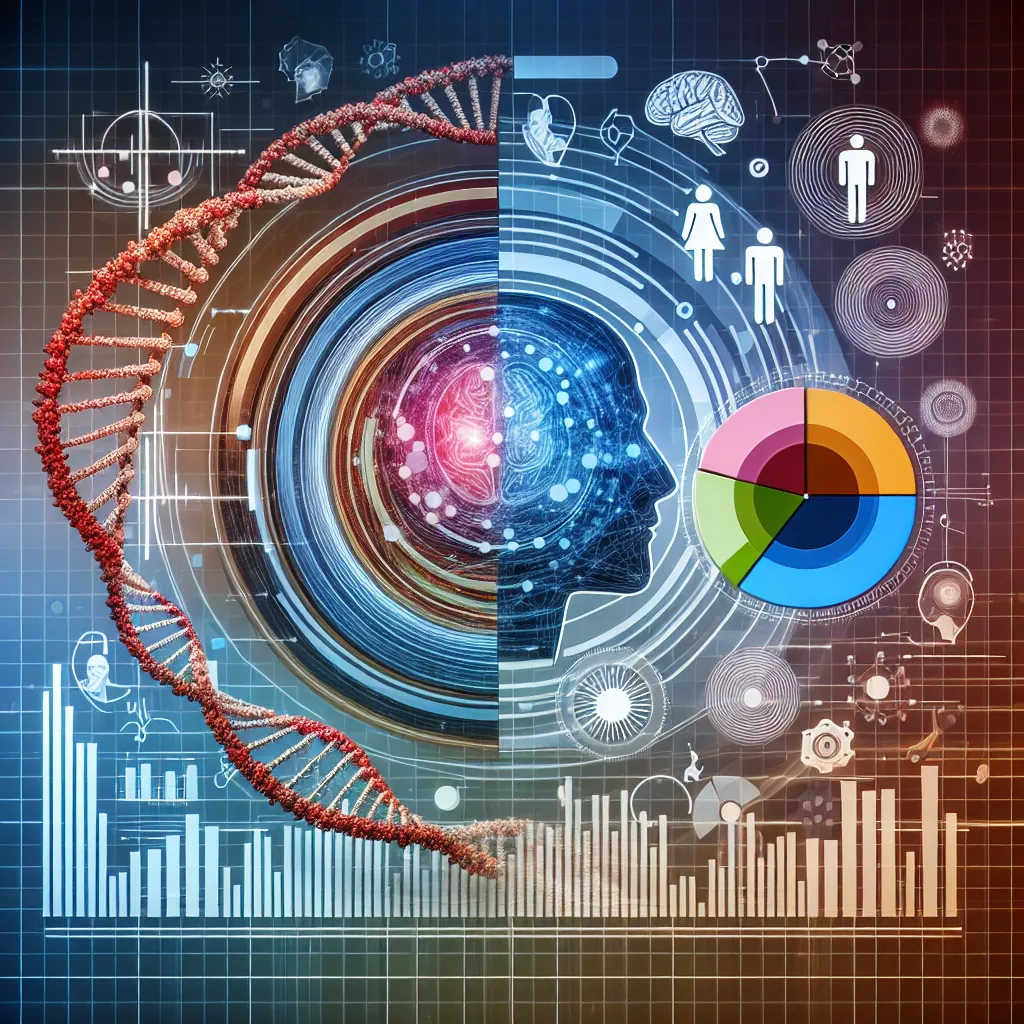The essence of who we are is often attributed to a complex interplay of various factors, one of which is our genetic makeup. Genetics, the study of genes, heredity, and genetic variation in living organisms, has long been a subject of interest in understanding human behavior and personality. As the field of genetics has evolved, so has our insight into its influence on personality traits. Various tests now exist that claim to unravel the genetic underpinnings of why we are the way we are. This article delves into the pervasive influence of genetics on personality and the revelations brought forth by genetic testing.
Personality is a unique pattern of thoughts, feelings, and behaviors that persist over time and across different situations. It is what distinguishes one individual from another. While psychologists debate the extent to which personality is shaped by genetics versus environment—often referred to as the nature versus nurture debate—increasing evidence suggests that both play significant roles. Genetic testing has added a new dimension to this debate by providing tangible data on the genetic components of personality.
One of the primary forms of genetic testing as it relates to personality is genome-wide association studies (GWAS). These studies involve scanning complete sets of DNA, or genomes, from many people to find genetic variations associated with a particular trait or behavior. The findings from GWAS have led to the identification of several genetic markers that have correlations with specific personality traits. For example, variants in the DRD4 gene have been linked with novelty-seeking behaviors and extraversion, while APOE has been associated with neuroticism.
Another category of DNA analysis comes from consumer genetic tests offered by companies such as 23andMe and AncestryDNA. These tests, which can be done using a simple saliva sample, provide a wealth of information about an individual’s genetic predispositions. By examining specific alleles, or gene variants, these companies suggest predictions about certain traits, including those related to personality, such as propensity for introversion or extraversion, as well as risks for behavioral disorders.
The role of genetic testing in understanding personality is further underscored by studies on heritability. Heritability is the proportion of observed variation in a particular trait among individuals that can be attributed to inherited genetic factors. Twin studies, in particular, have proven instrumental in heritability research. Identical twins, who have virtually identical genetic codes, often present more similarity in personality traits than fraternal twins, who share about 50% of their genes, just as any siblings would. These studies support the notion that genetics accounts for a significant portion of personality variation.
However, it is crucial not to overestimate the influence of genetics. The heritability of most personality traits is typically less than 50%. This means that factors other than genetics—such as culture, life experiences, and individual choices—play a larger or at least equal role in shaping personality. Moreover, it is the interaction of genes with the environment (gene-environment interaction) that often determines behavioral outcomes. A person might have a genetic predisposition towards certain traits, but whether these traits are expressed can largely depend on environmental factors.
The ethics of genetic testing for personality traits are also a burgeoning area of discussion. While some argue for the empowerment that comes with gaining insights into one’s genetic propensity, others raise concerns about privacy, data security, and the potential misuse of genetic information. People seeking a deeper understanding of their personality through genetic tests should be aware of these considerations and ensure their genetic information is treated with confidentiality and used responsibly.
Looking forward, the field of genetics is poised to reveal even more about the interplay between genes and personality. Advances in technology, such as CRISPR-Cas9 gene editing and whole-genome sequencing, are expected to provide a more nuanced picture of how specific genetic variants contribute to the vast tapestry of human personality. Research into epigenetics, the study of changes in gene expression caused by mechanisms other than changes in the underlying DNA sequence, could also unveil how environmental factors may switch on or off certain genes affecting personality.
In conclusion, genetics plays a noticeable role in the development of personality, with tests revealing associations between genetic markers and specific personality traits. However, it is essential to recognize that our personalities are the result of various interconnected factors, and our genes are just one element of this complex equation. The knowledge gleaned from genetic testing offers valuable insights but should be interpreted with caution and balanced by an understanding of the non-genetic factors that contribute to our individuality. As we continue to explore the depths of our genetic blueprint, it becomes increasingly clear that while our genes provide a foundational script, it is life’s experiences that direct the play.



Leave a Comment